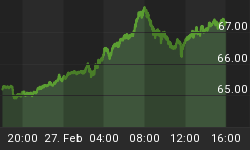After Amazon successfully put a majority of its retail "brick and mortar" competitors out of business, it is now cracking down on its own supply chain.
In Jeff Bezos latest move to boost flagging profits and razor-thin margins at the company's core e-commerce business, Amazon abruptly stopped buying products over the past two weeks from many of its wholesale vendors, encouraging them to instead sell their products directly to consumers on Amazon’s marketplace, even if that means disrupting relationships with longtime suppliers and potentially limiting customer choice. And, according to Bloomberg which cited consultants who help clients sell on Amazon, thousands of vendors are affected.
The departure from the company's traditional business model of serving as logistical middleman between buyers and sellers, is pushing suppliers directly onto the marketplace - rather than selling products itself - and lets Amazon offload the risk but more importantly, the cost of purchasing, storing and shipping the merchandise. Instead, leveraging its quasi-monopolistic scale, Amazon is moving to charge suppliers for these services while taking a commission on each transaction, resulting in much higher margins per transaction. The disruptive strategy is part of a larger effort to reduce overhead by getting more suppliers to use an automated self-service system that requires no input from Amazon managers.
Commenting on the change in the company's traditional operating model, Amazon responded to Bloomberg that it regularly reviews its selling partner relationships "and may make changes when we see an opportunity to provide customers with improved selection, value and convenience." What it meant is that it is now big enough to extract an even greater profit from each transaction as the company's vendors have no other choice.
And while their options may be limited, the vendors were not only shocked by the change in strategy, they are also furious: the abrupt cancellation of orders prompted panic this week at the ShopTalk retail conference that drew more than 8,000 retailers, brands and consultants to Las Vegas. Related: What's Behind New York's Struggling Housing Market?
Some attendees said Amazon stopped submitting routine orders last week for a variety of products, often without explanation. The drought continued this week, affecting more vendors and leaving them frustrated about the lack of communication from Amazon.
One vendor who has been selling products to Amazon for five years said he got a canned response when he inquired why his routine weekly purchase order never came through. The response gave him no clarity about his standing as a vendor, he said.
Meanwhile, unless sellers adopt to the new way of transacting, they could be stuck with massive losses as they find themselves with significant inventory, they are unable to find buyers for. As Bloomberg explains, because many suppliers source products from manufacturers months in advance, "they’ll have to quickly shift their sales tactics if the expected Amazon orders don’t come in."
Now more Amazon vendors will be forced to sell on the marketplace or risk getting stuck with unsold inventory, said Will Land, CEO of Marketplace Valet, an e-commerce logistics provider and consulting firm in Riverside, California.
“When you get used to those big checks,” he said, “it’s hard to pull away.”
“If you’re heavily reliant on Amazon, which a lot of these vendors are, you’re in a lot of trouble,” said Dan Brownsher, Chief Executive Officer of Channel Key, a Las Vegas e-commerce consulting business with more than 50 clients that sell more than $100 million of goods on Amazon annually. "If this goes on, it can put people out of business." Brownsher was among several consultants who said Amazon’s move has affected thousands of vendors. Related: Scientists Take Rare Look Inside 'Wire Gold' Specimen
In some ways the move shouldn't have come as a surprise: in recent years, Amazon has increasingly prioritized its marketplace. More than half of all products sold on Amazon in 2018 came from marketplace merchants, while revenue providing services to those merchants is growing at double the pace of revenue from the online store. This is reflected in the company's "sum of the parts" valuation: according to Evercore ISI analyst Anthony DiClemente, the marketplace business is worth about $250 billion, more than double the value of the online retail business.
It's almost as if having put many of its less efficient competitors out of business, Amazon has "gone hostile" against the very people who made its ascent to the throne of online retail monopoly possible in the first place.
Which once again begs the question: is Amazon a monopoly, and when will the FTC finally be forced to me a determination. One thing is certain: as Bezos - and Amazon - seek to also directly influence consumer behavior, don't be surprised not to find any mention of just how "capitalistic" Amazon has become, say, on the pages of the Washington Post, which is bundled as a "free" subscription to any paying member of Amazon Prime.
By Zerohedge
















